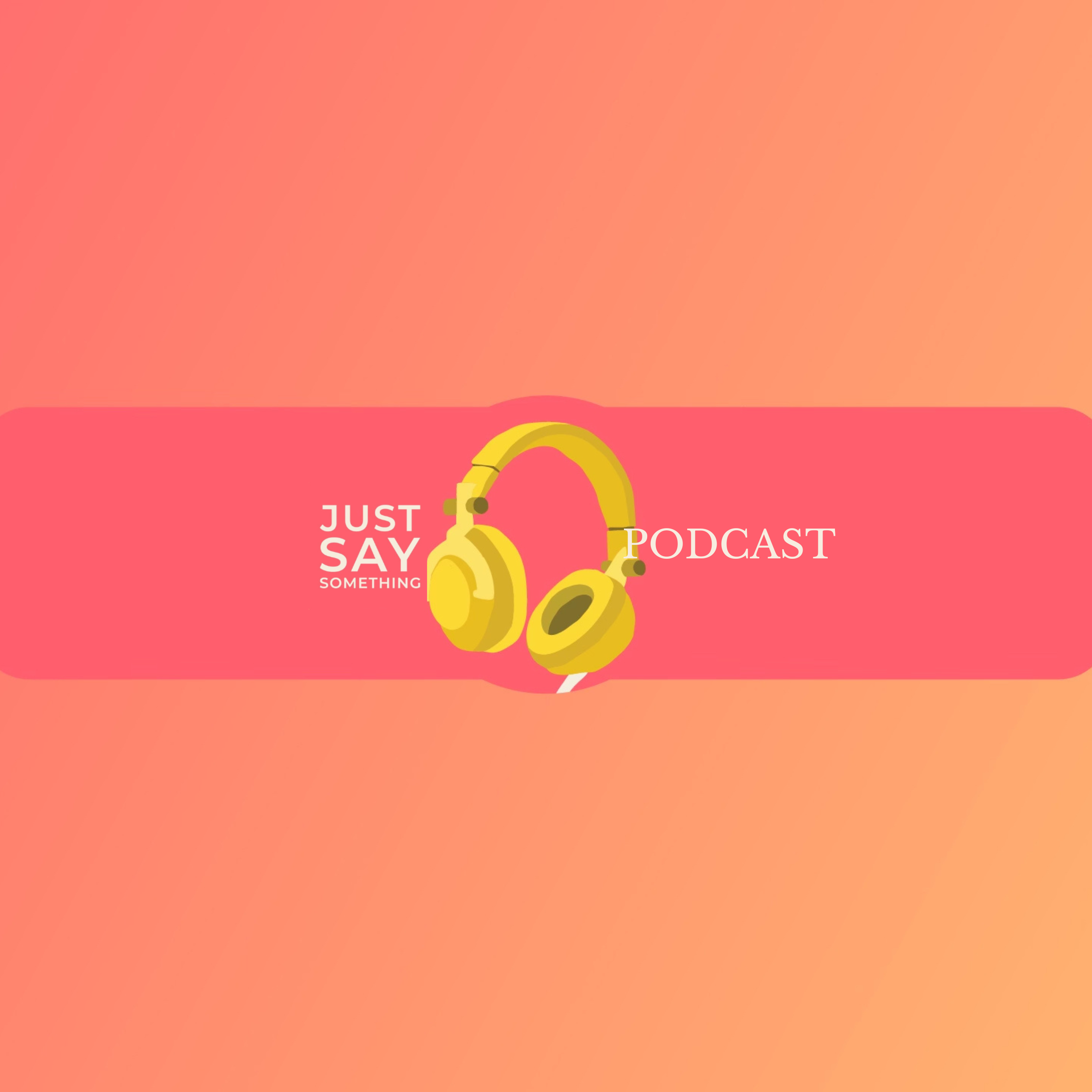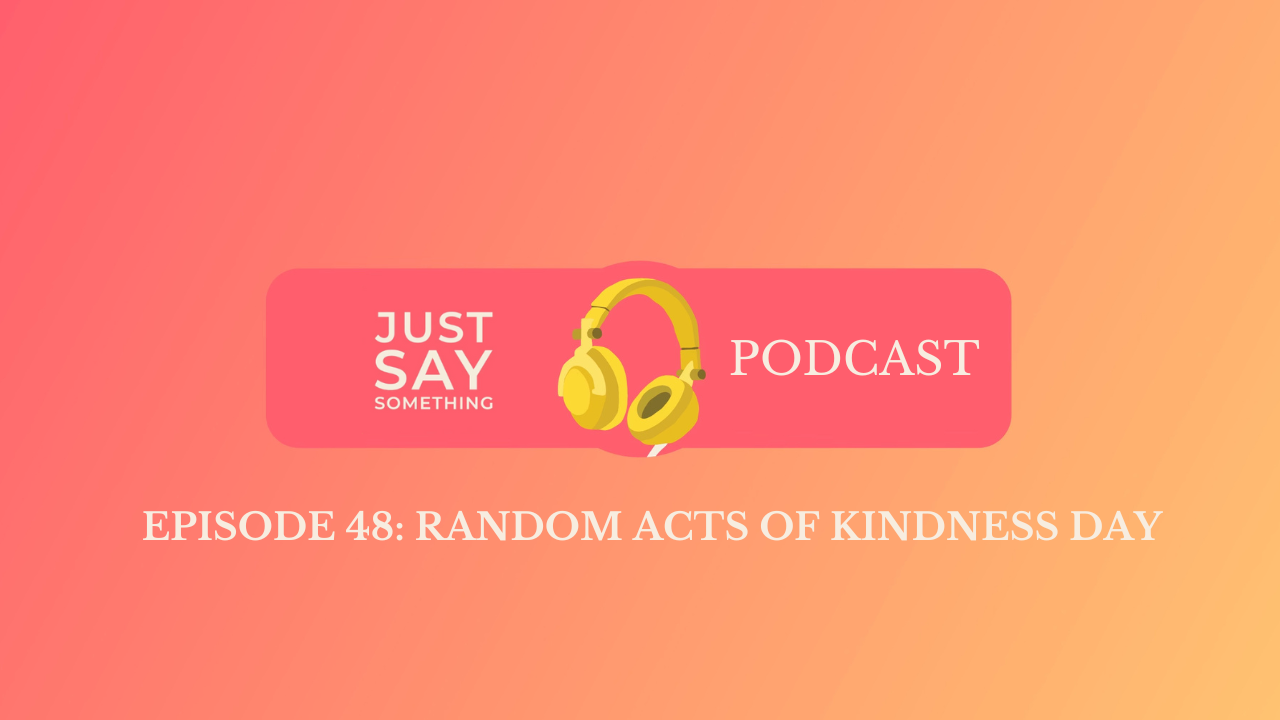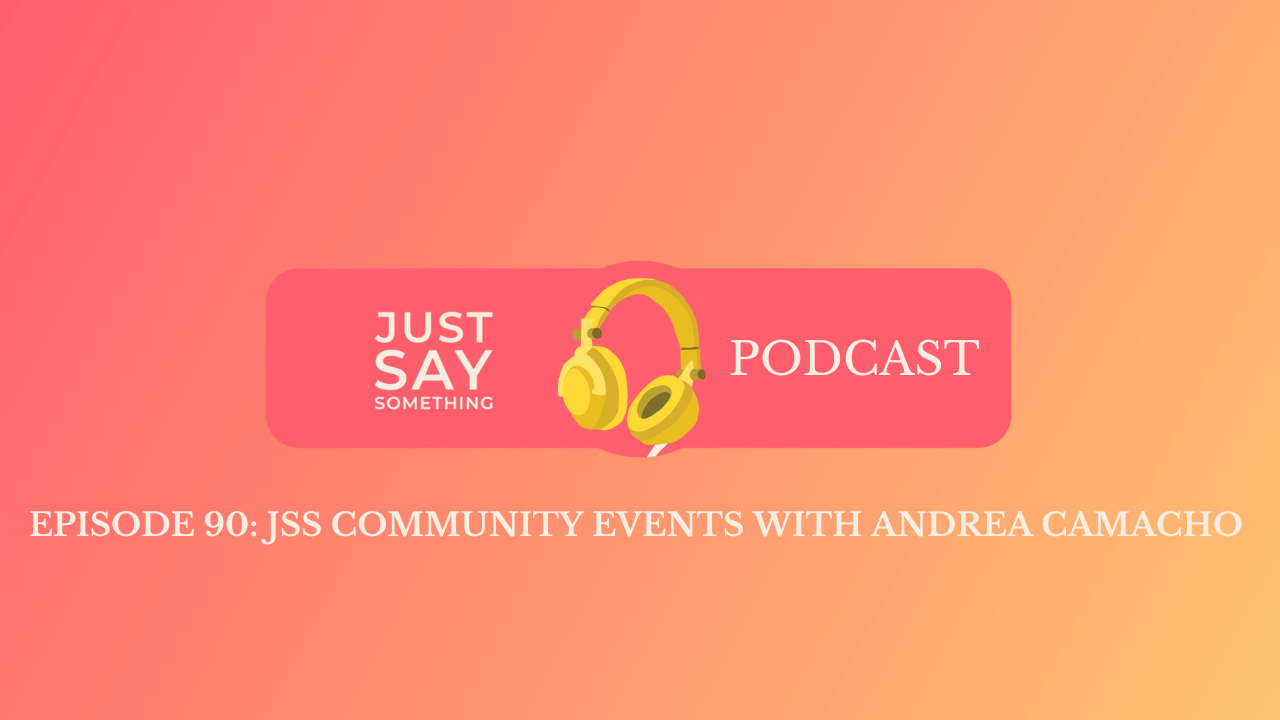Episode Transcript
[00:00:00] Speaker A: Foreign.
Welcome back to another Just say Something weekly podcast. My name is Philip Clark and I am the CEO here at Just say Something. And before we get started with today's guest, be sure to like, subscribe, comment and share. Share. That's it. Thank you. I knew there was something else.
And so, as you can see, today we have our guest today is Mr. Richard Jurgen III.
And as you can tell, he's decked out in his Clemson clothes.
So you've heard us talk about our youth summit that's coming up on July 2nd and 23rd at Carolina High School is specifically for middle school kids, boys or. And girls. And so how we're going to do this is we will have a girls track and we will have a guys track. And so Richard, you're, you're designing the, the guys track.
So tell our audience a little bit about your background and, and how you got into, or what led you into this work that we're doing with kids.
[00:01:32] Speaker B: Yeah.
So for those who are unfamiliar with me, I am a husband, I am a father, first and foremost, myself. So how I got into this is I'm raising kids of my own. So I understand what it's like to intervene and to, you know, need someone else's voice outside of your own voice as a, a parent, to be a parent in those situations where, you know, we don't know what to say. So we have to teach them what to say and how to act and what to do. And so with the division within, you know, this entire country, you know, we're going to focus on where we are as a county and what we can do to bring change here to Greenville, South Carolina specifically. And so with our young man, you know, the, the whole idea with this, this guy's track is for me to utilize my experiences not only, you know, as a former two time national champion at Clemson University playing football, but as a scholar. Right. Like, obviously the brand is going to attract people, but the man is what's going to keep people. And so, you know, the man that I am today in the work that I do as a professor at Clemson University in the College of education, as a PhD student, doing rigorous amounts of research, you know, and traveling all over the country, speaking, working with school districts, working with leaders to help sharpen the character and leadership of our young men and women of tomorrow. But specifically for this summit, you know, the focus is going to be linear and it's going to be focused on aligning the minds and the hearts of our young men with this curriculum, to be empowered, to go out and become leaders right after they leave. And so, you know, with my book the man is Greater than Brand, which has been a national bestseller across the country, with bringing that change as a catalyst for, you know, what it looks like to put our kids on full display and allow them to digest this curriculum over two days and see what it does.
And so I think I'm excited because, you know, I've spent a lot of time with my team, you know, and how we want to package this, how we want to, you know, put this in the hands of, you know, every young person that we get a chance to come in contact with at this summit. But specifically focusing on our young men, developing their vision, developing their mission, who am I really right? Those are some of the activities as far as setting the framework for where we plan to go by the end of it, which is having them write a letter to themselves and their future self and what they want to see out of themselves, you know, after we dig it out of them over those two days.
[00:04:21] Speaker A: Right, right.
So as we look at this, and if we look at your role in this, you're, you're a lot closer to the kids age than I am.
What when you were growing up, when you were in middle school, what's changed from then to what the kids have to face now in middle school.
[00:04:49] Speaker B: You have the advancement of technology and you have the access to everything that maybe we didn't have as good access to back in the day. Like for example, you know, I remember vividly being able to, you know, create a MySpace account, but you'd have to go home, log in on your computer at home, you know, if you had that type of access and you'd have to kind of wait until after school. But guess what? Now, you know, you've got Instagram, Facebook, Tick tock, all these different channels that have arrived over the past decade and some change. And so you've seen a complete change in the world of mental health because of that. And so I think now, you know, with over, I believe 60 to 70% of folks being diagnosed with a mental health illness and what we're in the month of May and this is mental health month, and people are walking around not even knowing, right. That they're mentally suffering from something that they might have seen online that caused a trauma response. Right. You know, and everything is right there. And I think for our teens, you know, it's just so important to replace what's in their hand and put something back in their head, you know, and in their heart. Right, right. Something that they can really tangibly feel and know that, you know, a lot of times the stuff that you see online is just garbage, right? Like what you click on and what you subscribe to is what you feed yourself with every day, right?
[00:06:21] Speaker A: It's called algorithms. Right?
[00:06:23] Speaker B: There you go. The algorithm.
[00:06:25] Speaker A: I can't even say it.
[00:06:26] Speaker B: The algorithm. So you got to fight that.
That algorithm's waiting on you to wake up because it knows what time you wake up when you scroll, what it wants you to look at. And it just programs you, right? It programs your mind. And so how do we do a hard reset for two days?
[00:06:43] Speaker A: Right?
[00:06:45] Speaker B: Debunk, if I'm saying the word correctly, or debug the system called your brain. Right. And wipe out your internal software. Because ultimately we can't change your heart, where you are, who you are on the outside, but internally, your software, how can we clean that up over two days?
[00:07:04] Speaker A: So as we look at that, knowing that middle school is particularly challenging for kids, as I've said before, you know, in elementary school, they're cute. Oh, isn't that sweet? And then they get to middle school and it's like, ah, what happened to my cute little kid?
And so as we think about that and we look at some of the strategies of what we want to teach them within the Youth Summit for, for those two days, what's that look like for the parents that are listening that may have middle school kids of they're already saying, oh, my gosh, that's my kid, that's my kid.
What are some of the strategies that we're going to be using to get the kids find their voice?
[00:07:49] Speaker B: You know, the first thing is we're going to educate them. You know, I think the best way that you create change is, you know, providing them with education. So putting my book in front of them, allowing them to digest my story and be able to feel and harbor some of the feelings that I had at their age, and being able to speak to them where they are, and then taking the activities that we have planned with them, centered around the curriculum that's in the book, to help extract and bring out some of those finite things within them, right? Like some things they probably don't share, right. Some things they probably are afraid to say at home. But that could be that inflection point that leads to growth, right? And so the goal is to find out where their blind spots are and to allow that to become their strengths, right? So things that. That maybe they didn't see or they didn't know about themselves. We want to get them to literally squeeze every single bit of the lemonade out of that lemon that we can make with them. Right. Because essentially they're, they are at the most pivotal point in their life called puberty. Right, Right. So let's just call it what it is. Right. Scientifically speaking, they're going through the most amount of changes that their emotions, their body and everything will go through. Until the age of 26. A male's brain is not fully developed emotionally. So you think about you're starting this development process at the age of 12, 13, and it's going to last another 12 years to 15 years. Right, right. Of you trying to figure out how to reprogram yourself day after day, because you don't just program yourself one to two days and then it's there forever. Right. Like you have to constantly update your system, update your knowledge. Right. And so we want to lay a solid foundation, right. That's going to leave them wanting to learn more, be educated, feel empowered, leave their feeling liberated. Right. Of like, I didn't know this about myself or I didn't notice about that person. And so radically showing empathy. Right. Like showing up in the space saying, you know what? I don't have the answer to everything, but at least I could start getting some answers here. Right, right, right.
[00:10:10] Speaker A: Yeah, yeah. And knowing that, you know, especially with, with boys, you know, it, we're not supposed to show our emotions and we learned that at a very young age.
Knowing that each kid is, is as individual as a snowflake.
What is one of your strategies of trying to break through to that hard headed little darling?
[00:10:41] Speaker B: One of my strategies is peeling back the layers of the onion. So you know how, you know, onion has layers to it. Right. So the first layer is the icebreaker, right. So we break the ice and we're able to at least start to work on that second layer, which is like, I want to say something but I'm not ready yet. Right. And really sitting with that and understanding that just because someone didn't share or say something, that doesn't mean that they aren't receiving what you're saying to them. Right. And so that's when you get past layer two and we get to layer three. Right. And so layer three, I'm assuming that will allow us to have that meeting of the minds, right. Where that individual trusts us enough once we cross that threshold. And now once we get into layer four and five, we've gotten deeper in. Right. So we're getting almost so close to the core of the issue. Right. Because it Takes time before you get to the root of a problem or the root of the cause or. Right. You know, this or that. And so it's like, you know, we have all the time in the world for 48 hours to, you know, lay, like I said, a foundation for what it looks like to peel back the layers of each one of those individualized onions that are going to walk through the door with their guard up, their aroma on them, whatever the case might be. But once you find out what's really going on at the core of the issue with that individual, you realize, like, it just takes time. Right. And unfortunately, like, we're not going to build Rome in a day. Right. But we could at least lay the foundation for Rome to be built over the next few years.
[00:12:21] Speaker A: Mm.
So, you know, again, kids have so much that they're having to deal with these days, and the biggest perpetrators are social media and technology.
How do you break through to kids to put that device down or to set that to the side? What's your. What's your special sauce to make that happen?
[00:12:49] Speaker B: Well, my special sauce has always been to engage. Right. And engage meaning, like, okay, if I have to have my phone right now, am I using my phone to educate myself more on something right now? Because, I mean, there's. You got chat, GPT, you got all these things out there that you can be utilizing to educate yourself, but nine times out of ten, you aren't utilizing and doing all that. So why do you need your phone right now? If we're having. If. If I. If I'm having a direct conversation with you and looking at you eye to eye, what do I need my phone for right now? Like, I plan on this being a situation where you forget about your phone.
Like, the moment you walk in, you're going to realize the only time I need my phone is at the end of the day to let my parents know how great of a day I've had. Right?
[00:13:40] Speaker A: Yeah.
[00:13:40] Speaker B: Or to record a selfie or record the moment and document it because it was so powerful. That's. That's the goal is the moment you walk in, you're engaging with people. Eye contact, you're learning soft skills without realizing that you're learning those soft skills because phones can distract you from really digging into those particular soft skills that take you to another level. Right, Right.
[00:14:05] Speaker A: You know, I'm sure we've all seen it. Gone to a restaurant and a table across from you, there might be three or four people there, and all of them are on their phone.
[00:14:15] Speaker B: Right.
[00:14:15] Speaker A: Not. Not having any conversation whatsoever. And so we've lost that connectedness that we need to get back. Once again, this is Philip Clark would just say something. I'm talking with Richard Jurgen III as part of our Youth Summit. The name of it and the website is takeitback youth summit.com it will be July 22nd and 23rd at Carolina High School here in Greenville. And so as we bring this to a close, Richard, what's one piece of advice that you would give either a kid or a parent to help keep them, let's say a kid to help keep them focused on what makes them tick?
[00:15:08] Speaker B: I'll tell you this.
Majority of accidents happen within five miles of your final destination. So as we close out the school year, I know that there are a bunch of opportunities to either put yourself ahead or fall further behind. And right now, I'll tell you this much. Don't take your foot off the gas and don't take your eye off the prize.
Sam.


